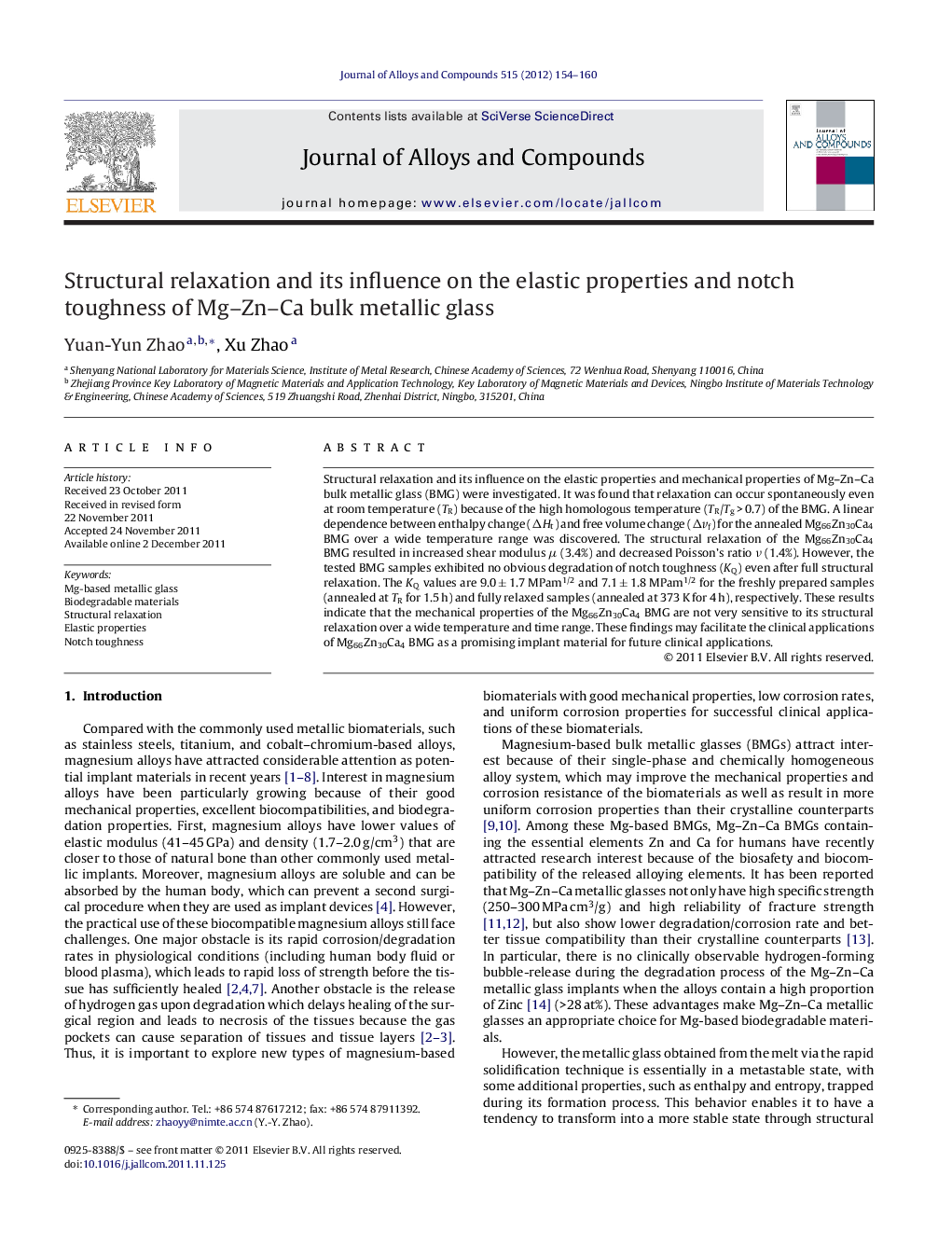| Article ID | Journal | Published Year | Pages | File Type |
|---|---|---|---|---|
| 1616347 | Journal of Alloys and Compounds | 2012 | 7 Pages |
Structural relaxation and its influence on the elastic properties and mechanical properties of Mg–Zn–Ca bulk metallic glass (BMG) were investigated. It was found that relaxation can occur spontaneously even at room temperature (TR) because of the high homologous temperature (TR/Tg > 0.7) of the BMG. A linear dependence between enthalpy change (ΔHt) and free volume change (Δvf) for the annealed Mg66Zn30Ca4 BMG over a wide temperature range was discovered. The structural relaxation of the Mg66Zn30Ca4 BMG resulted in increased shear modulus μ (3.4%) and decreased Poisson's ratio ν (1.4%). However, the tested BMG samples exhibited no obvious degradation of notch toughness (KQ) even after full structural relaxation. The KQ values are 9.0 ± 1.7 MPam1/2 and 7.1 ± 1.8 MPam1/2 for the freshly prepared samples (annealed at TR for 1.5 h) and fully relaxed samples (annealed at 373 K for 4 h), respectively. These results indicate that the mechanical properties of the Mg66Zn30Ca4 BMG are not very sensitive to its structural relaxation over a wide temperature and time range. These findings may facilitate the clinical applications of Mg66Zn30Ca4 BMG as a promising implant material for future clinical applications.
► Structural relaxation can occur at room-temperature for Mg66Zn30Ca4 BMG. ► A linear dependence between ΔHt and Δvf for the Mg66Zn30Ca4 BMG was discovered. ► The toughness of Mg66Zn30Ca4 BMG is insensitive to its structural relaxation.
